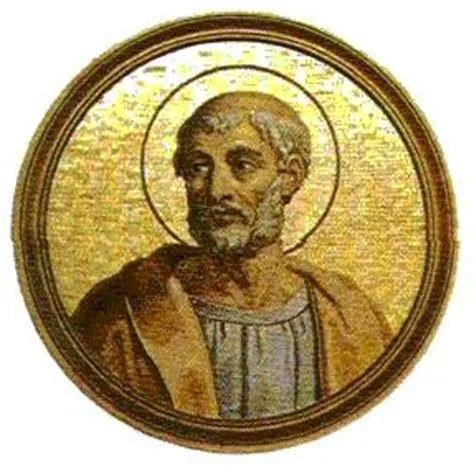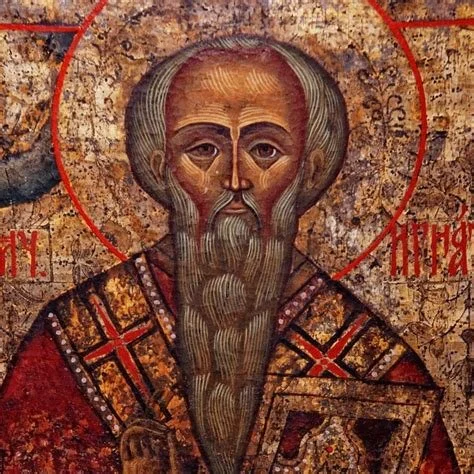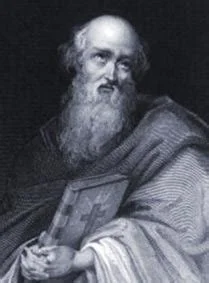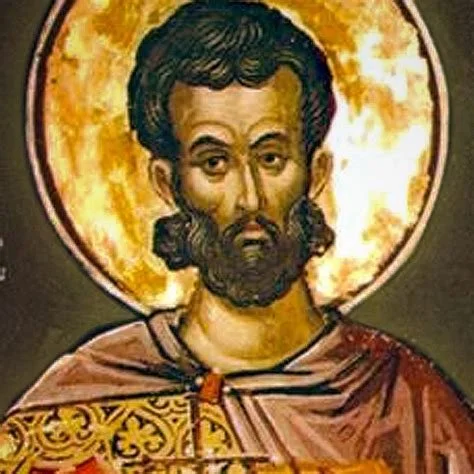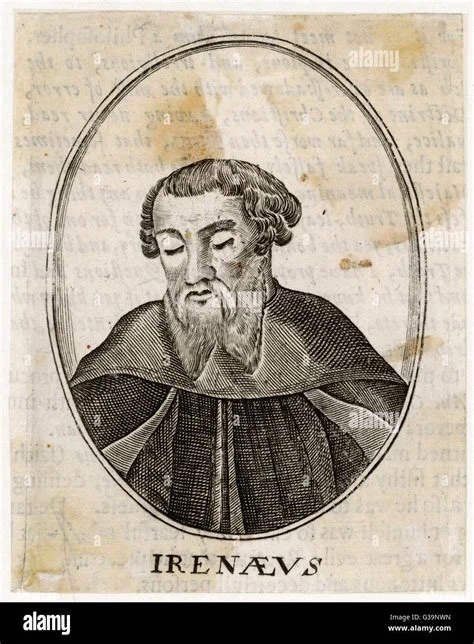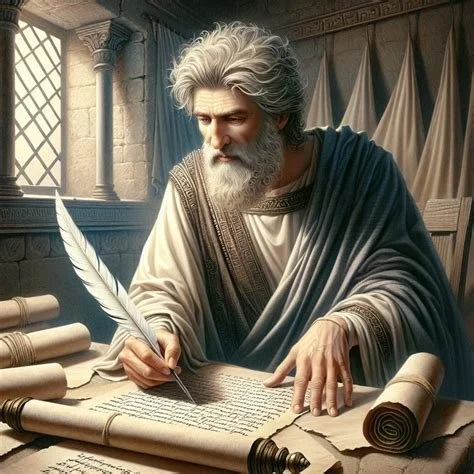The Apostolic Fathers were early Christian writers who either knew the Apostles personally or were closely connected to them. They represent a distinct group within the broader category known as the Ante-Nicene Fathers—those who lived and wrote before the Council of Nicaea (Nicea) (AD 325).
The Apostolic Fathers lived in the first and second centuries after Christ. Their writings date from about from AD 80-180. They represent the first and second generations after the Apostles and served as key links in preserving and passing on apostolic teaching.
The Apostles were the original twelve chosen by Jesus (minus Judas Iscariot, who was replaced by Matthias). These men were disciples (learners) during Christ’s ministry and became the Apostles (meaning “sent ones” or missionaries) after His resurrection. The word apostle(s) appears ten times in the Gospels, thirty-eight times in Acts, and frequently throughout the Epistles and the book of Revelation.
The Ante-Nicene Fathers include both the Apostolic Fathers and the succeeding generations of church leaders and writers who lived before AD 325 and the Council of Nicaea.
While the Apostolic Fathers were closely tied to the Apostles themselves, the broader group of Ante-Nicene Fathers includes those who carried the faith forward in the decades and centuries that followed.
Two of the main heresies that threatened the early church were gnosticism and docetism, both of which denied essential truths about Christ’s incarnation, humanity, and role in salvation.
Both gnosticism and docetism were major themes of the Apostolic Fathers.
(Information to this point came from: https://www.gotquestions.org/Apostolic-Fathers.html)
Gnosticism:
“Christian Gnosticism refers to the amalgamation of certain Christian terminology and narratives with ‘gnosis,’ a Greek word signifying ‘knowledge.’ This special ‘knowledge’ was claimed to be the key to salvation or spiritual enlightenment. Adherents of Christian Gnosticism typically combined biblical names and themes with speculative systems that taught the physical world was evil and that only a secret, inner revelation could lead to union with the divine. This system stood in contrast to the biblical teaching of redemption through the literal death and resurrection of Jesus Christ and the biblical assertion that God’s creation is fundamentally good (Genesis 1:31).” (https://biblehub.com/q/what_defines_christian_gnosticism.htm)
Some verses refuting Gnosticism: Colossians 2:8; 1 John 4:2; 1 Timothy 6:20-21; 1 Corinthians 2:6-8
Docetism:
“Docetism was an error with several variations concerning the nature of Christ. Generally, it taught that Jesus only appeared to have a body – that he was not incarnate (Greek, ‘dokeo’ = ‘to seem’). This error developed out of the dualistic philosophy, which viewed matter as inherently evil–that God could not be associated with matter and that God, being perfect and infinite, could not suffer. Therefore, God as the word, could not have become flesh per John 1:1, 14, “In the beginning was the Word, and the Word was with God; and the Word was God . . . And the Word became flesh, and dwelt among us . . . ” This denial of a true incarnation meant that Jesus did not truly suffer on the cross and that He did not rise from the dead. This denies the sufficiency of the atoning sacrifice of Christ, and it violates the essential doctrine of the physical resurrection of Jesus (1 Cor. 15:14, 17). So, docetism is a serious heresy that invalidates the truth of gospel and the person of Jesus.” (https://carm.org/carm/docetism/)
Some verses refuting docetism: 1 John 4:2-3; 2 John 7; Jesus’s genealogies in Matthew 1:1-16 (Joseph, His step-father’s) & Luke 3:23-38 (Mary’s); Hebrews 2:14-17
Here is a sampling of the Apostolic Fathers / Ante-Nicene Fathers’ writings from Andrew, one of our contributors:
Apostolic Fathers/
Ante-Nicene Fathers
Clement of Rome (c. AD 95)
Connection to the Apostles: Companion of the Apostle Paul (Philippians 4:3)
“Clement was a contemporary of Paul and Peter, and is mentioned by Paul in his letter to the Philippians.” (Philippians 4:3) (Ecclesiastical History 3.15)
Eusebius confirms that Clement knew the Apostles, or was closely associated with them, and implies that he was part of the apostolic circle.
Quote: "Brethren, we ought so to think of Jesus Christ, as of God, as of the Judge of the living and the dead." (1 Clement 2:1)
Ignatius of Antioch (c. AD 107)
Connection: Disciple of the Apostle John
Quotes:
• "For our God, Jesus the Christ, was conceived by Mary according to the plan of God..." (Letter to the Ephesians, ch. 18)
• "I am writing to all the Churches ... that I am dying for the sake of Jesus Christ, our God..." (Letter to the Romans, Introduction)
• "I glorify Jesus Christ, the God who made you so wise ..." (Letter to the Smyrnaeans, ch. 1)
• "There is one Physician ... God in man ... Jesus Christ our Lord." (Letter to the Ephesians, ch. 7)
Polycarp of Smyrna (c. AD 110-155)
Connection: Disciple of the Apostle John;
“There is extant a letter of Polycarp written to the Philippians … and it is worth noting that he had been instructed by the apostles and was familiar with many who had seen the Lord.” (Ecclesiastical History 4.14.4)
“He was also, as it is said, appointed bishop of Smyrna by the Apostles themselves.” (Ecclesiastical History 3.36.1)
Quotes:
• "The eternal High Priest Himself, the Son of God Jesus Christ ..."
Letter to the Philippians, Ch. 12
• "They did not worship him as a mere man ... but as the Son of God."
Martyrdom of Polycarp, Ch. 17 (Though not using the phrase “Jesus is God,” Polycarp affirms His divine status.)
Second Clement (c. AD 120-140)
Connection: Early Roman Church under Peter and Paul's successors
Quote:
• "Brethren, we ought so to think of Jesus Christ, as of God, as of the Judge of the living and the dead." (2 Clement 1:1)
Justin Martyr (c. AD 150)
Connection: Early Christian apologist; debated Jews and Romans; martyred in Rome c. AD 165, hence his last name
Quotes:
"Christ is called both God and Lord of hosts ..." (Dialogue with Trypho, Ch. 61)
"We worship Him ... the Son of the true God Himself." (First Apology, Ch. 63)
Irenaeus of Lyons (c. AD 180)
Connection: Disciple of Polycarp, who was taught by the Apostle John
Quotes:
"Christ Himself, therefore, together with the Father, is the God of the living ..." (Against Heresies 4.6.6)
"The Father is God, and the Son is God. For whatever is begotten of God is God." (Demonstration of the Apostolic Preaching, §47)
Theophilus of Antioch (c. AD 180)
Connection: Bishop of Antioch, successor to the apostolic line in Roman Catholic tradition
Quote:
"The Word is the Son of God ... God from God, the first-born of all creation." (To Autolycus, Book 2, Ch. 22)
Clement of Alexandria (c. AD 195)
Connection: Early Christian teacher; passed apostolic tradition to Origen
Quotes:
"Learn to know the One God... the Father, the Son, and the Holy Spirit." (Exhortation to the Greeks, Ch. 1)
"We acknowledge ... one Godhead." (Stromata, Book 5, Ch. 14)
Tertullian of Carthage (c. AD 197-220)
Connection: Father of Latin Christianity; developed early trinitarian theology
Quotes:
"The Son is God and the Father is God ... each is God." (Against Praxeas, Ch. 27)
"We believe... He is God." (Apology, Ch. 21)
"The Son of God is not without Godhead." (Apology, Ch. 23)
Melito of Sardis (c. AD 170)
Connection: Bishop in Asia Minor linked to the Apostle John
Quotes:
"He who hung the earth in space was Himself hanged ... God has been murdered." (On the Pascha)
"Being God and likewise perfect man, He suffered for us." (On the Pascha)
What should you do with this information?
Why Should Jehovah’s Witnesses (or any authoritative, high-demand religious group) Listen to the Apostolic Fathers?
Because these were the first Christians after the Apostles—disciples of the Apostles.
Men like Polycarp, who was taught directly by the Apostle John,
and Clement of Rome, whom Paul praised in Philippians 4:3.
They didn’t invent traditions—they preserved the teaching that was “once for all delivered to the saints” (Jude 3).
They didn’t promote an earthly organization.
They pointed to Christ alone—as God, as Savior, and as the true Shepherd of the flock.
If you're a Jehovah's Witness who loves truth …
If you desire to worship as the early Church did …
Then you owe it to yourself to hear the voices of those who still echoed the Apostles themselves.
They weren’t "apostate."
They weren’t corrupted.
They were faithful, persecuted, and many died for the name of Jesus Christ our God.
So read them.
Test them—like the Bereans (Acts 17:11).
Compare what they said with Scripture—and with what the Watchtower says today.
Because truth has nothing to fear from examination.
And if the earliest Christians—disciples of the Apostles—proclaimed a different message than the Governing Body does today …
… then you are not bound to the Watchtower…
…but you are lovingly invited to follow the real Jesus.
Images in order of appearance: owlcation.com; catholic.com; stpius10mulund.org; almay.com; es.catholic.com; almay.com; catholicsaints.day; https://en.wikipedia.org/wiki/Clement_of_Alexandria; the famouspeople.com; saint.smp.org


